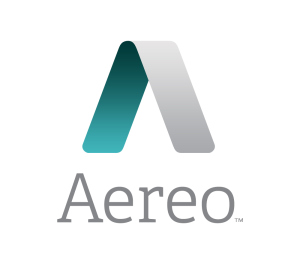Aereo network streaming TV service recently launched a new Bloomberg TV channel, marking the first content licensing deal inked by the New York-based startup. We sat down with Chet Kanojia, CEO and founder of Aereo to discuss licensing new content, expansion, and the current court case involving Aereo and major network TV broadcasters.
As it stands now, Aereo pulls most of its content from free over-the-air signals from network broadcasters like Fox, ABC, NBC, etc. Users are able to rent a tiny little antenna that works the same way as rabbit ears, and choose to watch live TV or previously recorded TV from the comfort of their connected devices.
According to Chet, the deal with Bloomberg TV is only the beginning. Aereo aims to completely disrupt the traditional process of watching TV. As he sees it, competition is all around. Library products, like Netflix and Hulu, have so much content, but “news and sports on demand is like history on demand,” says Chet.
As far as the cable companies are concerned, the content is definitely there too, but the price is very different. With cable you’ll pay anywhere from $80 to $100 a month, and Aereo only charges $8 per month.
This type of heavy-duty disruption has network broadcasters freaking out a little bit, which is why they’ve sued Aereo and are looking to get a preliminary injunction on the service. So far, however, that hasn’t worked out so well, as the courts have ruled in favor of Aereo.
Chet told me that Aereo was actually designed and built to work well within the law, which happens to be very complicated when it comes to reproduction rights, public performance rights, etc. But Chet tells me that he’s very confident that Aereo is well within the law, and he has no doubt that Aereo will make it through this huge lawsuit.
He even applauded the FCC, who is working to bring the latest technology to consumers in a fair and reasonable way.
I also asked Chet about the idea that building a company to just be within the law can be looked at by some as searching for loopholes. “The loophole argument just doesn’t make any sense or resonate with me,” he explained. “To say to somebody, ‘we set up a law and you followed it and we’re going to accuse you of following that law,’ that just sounds like talking out of both sides of the mouth to me,” said Chet.
The goal is actually to build a meaningful enterprise for the good of the consumer, which not only means bringing fair prices to the TV consumer, but bringing channel opportunities to creative professionals that need an outlet.
